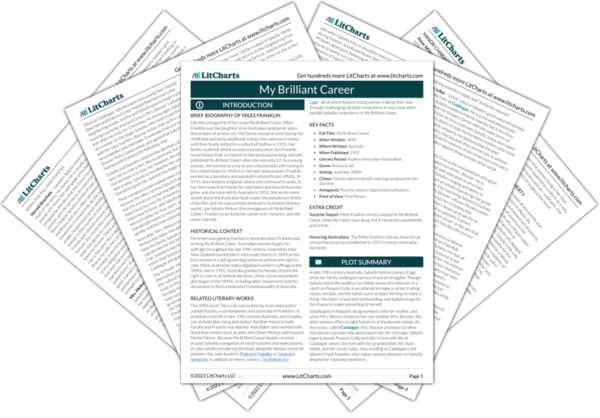Sybylla repeats again and again how weariness dominates the lives of her family and neighbors, and this emphasis challenges the common belief that poor people remain in poverty due to laziness. By showing how exhaustion permeates every aspect of peasant life, Sybylla argues that laborers are not lazy, they are simply worn out by lives of toil. It is amidst her realization of the weariness in her life that Sybylla first begins to worry about her “brilliant career.” She has ambitions of independence and brilliance, but she has only weary adults as examples for what adulthood might look like, which makes her dreams seem impossible.
